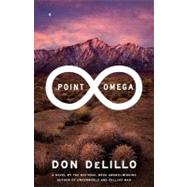
The New copy of this book will include any supplemental materials advertised. Please check the title of the book to determine if it should include any access cards, study guides, lab manuals, CDs, etc.
The Used, Rental and eBook copies of this book are not guaranteed to include any supplemental materials. Typically, only the book itself is included. This is true even if the title states it includes any access cards, study guides, lab manuals, CDs, etc.
The true life is not reducible to words spoken or written, not by anyone, ever. The true life takes place when we're alone, thinking, feeling, lost in memory, dreamingly selfaware, the submicroscopic moments. He said this more than once, Elster did, in more than one way. His life happened, he said, when he sat staring at a blank wall, thinking about dinner.
An eight-hundred-page biography is nothing more than dead conjecture, he said.
I almost believed him when he said such things. He said we do this all the time, all of us, we become ourselves beneath the running thoughts and dim images, wondering idly when we'll die. This is how we live and think whether we know it or not. These are the unsorted thoughts we have looking out the train window, small dull smears of meditative panic.
The sun was burning down. This is what he wanted, to feel the deep heat beating into his body, feel the body itself, reclaim the body from what he called the nausea of News and Traffic.
This was desert, out beyond cities and scattered towns. He was here to eat, sleep and sweat, here to do nothing, sit and think. There was the house and then nothing but distances, not vistas or sweeping sightlines but only distances. He was here, he said, to stop talking. There was no one to talk to but me. He did this sparingly at first and never at sunset. These were not glorious retirement sunsets of stocks and bonds. To Elster sunset was human invention, our perceptual arrangement of light and space into elements of wonder. We looked and wondered. There was a trembling in the air as the unnamed colors and landforms took on definition, a clarity of outline and extent. Maybe it was the age difference between us that made me think he felt something else at last light, a persistent disquiet, uninvented. This would explain the silence.
The house was a sad hybrid. There was a corrugated metal roof above a clapboard exterior with an unfinished stonework path out front and a tacked-on deck jutting from one side. This is where we sat through his hushed hour, a torchlit sky, the closeness of hills barely visible at high white noon.
News and Traffic. Sports and Weather. These were his acid terms for the life he'd left behind, more than two years of living with the tight minds that made the war. It was all background noise, he said, waving a hand. He liked to wave a hand in dismissal. There were the risk assessments and policy papers, the interagency working groups. He was the outsider, a scholar with an approvalrating but no experience in government. He sat at a table in a secure conference room with the strategic planners and military analysts. He was there to conceptualize, his word, in quotes, to apply overarching ideas and principles to such matters as troop deployment and counterinsurgency. He was cleared to read classified cables and restricted transcripts, he said, and he listened to the chatter of the resident experts, the metaphysicians in the intelligence agencies, the fantasists in the Pentagon.
The third floor of the E ring at the Pentagon. Bulk and swagger, he said.
He'd exchanged all that for space and time. These were things he seemed to absorb through his pores. There were the distances that enfolded every feature of the landscape and there was the force of geologic time, out there somewhere, the string grids of excavators searching for weathered bone.
I keep seeing the words. Heat, space, stillness, distance. They've become visual states of mind. I'm not sure what that means. I keep seeing figures in isolation, I see past physical dimension into the feelings that these words engender, feelings that deepen over time. That's the other word, time.
I drove and looked. He stayed at the house, sitting on the creaky deck in a band of shade, reading. I hiked into palm washes and up unmarked trails, always water, carrying water everywhere, always a hat, wearing a broadbrimmed hat and a neckerchief, and I stood on promontories in punishing sun, stood and looked. The desert was outside my range, it was an alien being, it was science fiction, both saturating and remote, and I had to force myself to believe I was here.
He knew where he was, in his chair, alive to the protoworld, I thought, the seas and reefs of ten million years ago. He closed his eyes, silently divining the nature of later extinctions, grassy plains in picture books for children, a region swarming with happy camels and giant zebras, mastodons, sabertooth tigers.
Extinction was a current theme of his. The landscape inspired themes. Spaciousness and claustrophobia. This would become a theme.
Copyright © 2010 by Don DeLillo